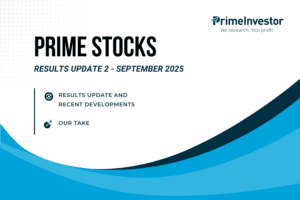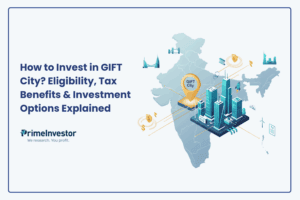The bond investing landscape is experiencing significant changes, particularly with shifts in mutual fund taxation affecting debt funds. Bonds have suddenly become more attractive, not only for their friendlier tax treatment but also better yields in some cases.
If that is on the demand side, there have been changes on the regulatory side as well. SEBI brought in norms for online bond platforms, making it mandatory for them to sell only listed bonds. Besides, it also brought down the face value of bonds under private placements to a minimum of Rs 10,000 as opposed to Rs 1 lakh earlier.

As more investors look to enter the bond market, understanding the various platforms available for bond investments becomes crucial. This report discusses the various options available for you to invest in the bond market.
If you want to know how to assess bonds and understand bond market jargons, then the two reports we have written earlier will help you.
3 avenues to investing in bonds
When it comes to investing in bonds, you aren’t limited to exclusive bond platforms. In fact, there are three main avenues through which you can access bond investments, each with its own characteristics and advantages.
- Traditional brokers – where you hold your stocks
- Online bond platform providers (OBPP) registered under SEBI offering listed bonds – more about them later in this report
- Other bond platforms – offering unlisted bonds and other debt instruments
If you have a demat account with major players like Zerodha or other equity brokers, technically, you can access bonds listed on the NSE or BSE. While this seems straightforward, there’s a catch – many of these players do not provide you access to most listed bonds. More often than not, they provide access to primary offer of bonds and sovereign gold bonds (SGBs). They may also offer some government securities (G-Secs) and state development loans (SDLs). Since not all listed bonds are actively traded, most of these brokerages would not be able to offer you the entire gamut of bonds.
This limitation led to the rise of Online Bond Platform Providers (OBPPs), which have recently come under SEBI’s regulatory umbrella. These platforms now require specific licenses to operate, adding a layer of legitimacy and security for investors. OBPPs offer corporate listed bonds as well as government securities, T-bills, SDLs, Capital gains bonds (Section 54EC bonds) and SGBs.
OBPPs function differently from traditional brokers. They act as marketplaces, sourcing bonds from multiple dealers and either holding them on their balance sheets (which means they buy and hold it like inventory) or working through partnerships with debt dealers. Unlike a traditional broker who charges you for a transaction made on the platform, OBPP will have a markup on the yield of the bond. That means you do not pay them separately.
While you need to do KYC and open an account with an OBPP, you can use any of your existing demat accounts to attach with the OBPP account to receive a bond that you seek to buy. Given below are the primary differences between choosing a OBPP and a traditional broker.
The third category comprises platforms dealing with unlisted bonds, operating outside SEBI's direct purview. These platforms handle instruments like bill discounting and short-term business loans and other lower rated bonds, representing a less formal lending segment of the market.
Understanding the distinction between listed and unlisted bond platforms is crucial for investors.
Why go with listed bonds
Listed bonds, whether accessed through brokers or OBPPs, offer several advantages.
- Information: Listed bonds they provide regular information through mandatory exchange filings, similar to listed stocks. This transparency helps you monitor the issuing company's health and receive alerts about potential problems. The big limitation with unlisted bonds is that they offer limited post-issuance information, making it harder to track the investment's performance.
- Tax: The tax treatment is also more favourable for listed bonds – while short-term gains are taxed at your income tax slab rate, long-term capital gains (after 12 months) are taxed at 12.5% without indexation. In contrast, unlisted bonds require a 24-month holding although the taxation has become the same since Budget 2024.
- Grievance cell: Only listed NCDs come under SEBI’s purview while unlisted ones are overseen by the Ministry of Corporate Affairs. So, the grievance mechanism is easier with listed bonds.
- Liquidity: While not all listed bonds will be easily tradable, they give you a better shot at liquidity in case you wish to exit prematurely, than unlisted ones.
- Risk: Apart from lack of direct regulatory oversight, the varied structures of unlisted debt instruments (bill discounting, complete securitised debt etc) makes the unlisted segment not only complicated for retail investors but also adds further layers to the risk involved.
Which investment option works
For retail investors, OBPPs and traditional brokers generally offer the safest route for bond investments. These regulated platforms provide essential protections, transparency, and clear grievance redressal mechanisms.
But going by the sheer number of bond choices (compared with broker accounts) that are available with an OBPP, your purpose would be better served with a OBPP without any doubt. For those of you interested only in government bonds, the RBI Retail Direct platform would be a better option given its advantage of zero cost. You can check our guide to using the RBI Retail Direct platform here. Please note that bonds bought through this will not go to your demat account and would instead be in the RBI bond ledger.
We do not recommend bond platforms that sell unlisted bonds (non-OBPPs) considering the high risk in many of these bonds and instruments besides lack of sufficient information to monitor. These platforms are also not regulated by SEBI, making it riskier for retail investors.
Choosing an online bond platform & operational facility
When selecting an OBPP, several factors deserve attention.
- First, verify the platform's SEBI license – this should be clearly disclosed on their website.
- The platform should implement proper KYC procedures and offer a fully online transaction process.
- Look for platforms that provide a mix of both safe (AAA, AA+) and high-yield bonds (but not below A), allowing for portfolio diversification.
- A critical consideration is the platform's secondary market support. Many bonds are illiquid, making it difficult to sell them through regular market mechanisms, should you need to exit before the bonds’ maturity. Some platforms offer to facilitate such sales on your behalf, while others only support buying. This difference can significantly impact your investment flexibility.
- Investment minimums vary significantly across platforms and bonds. While some bonds might be available for as little as ₹10,000, many listed bonds require minimum investments of ₹1 lakh or more. This is often because these bonds originate as private placements before entering the secondary market. Until recently, privately placed bonds had a face value of Rs 1 lakh. See if the platform you choose has bonds with lower minimum investment as well.
- For settlement and custody, all bond investments through OBPPs require a demat account, as the bonds are credited directly to your demat account. Settlements occur through recognized channels like ICCL or NSCCL, ensuring transaction security. Make sure the platform you choose is able to seamlessly carry these operations (especially online linking of your demat).
Several OBPPs have established themselves in the market, including Golden Pi, India Bonds, Wintwealth, and Grip Invest. Each has its characteristics and offerings. Some non-OBPP platforms like Giraffe, CreditX, and Golden Pi Plus (for deposits) operate in the unlisted bond space, and these come with additional risks we mentioned above.
When making your choice, consider your investment size, risk appetite, and need for liquidity. Remember that while bonds can offer attractive returns, they require careful evaluation of both the instrument and the platform through which you invest. For pure bond recommendations, you can refer to Prime Bonds, where we pick select bonds that pass our filters for credit quality, issuer strength and more. If you want to look for bonds yourself, read the report (linked above) on the filters you need to place before you choose a bond.
Note: Investment in securities market are subject to market risks. Read all related documents carefully before investing.






10 thoughts on “How to Choose the Best Bond Investment Platform in India”
Would like to point out that an OBPP if it has the technology in place can route orders through request for quote (RFQ) platform and also provide access to the trading platforms (NSE, BSE) . I am an account holder in Bond Bazaar (an OBPP) which provides both these options. I am not sure which other OBPP provides this facility but my guess would be that most of them don’t . From a price transparency perspective I think all the OBPP’s should move towards providing both RFQ and access to NSE/BSE. Only then can we see a true democratisation of the retail bond market .
All OBPPs work so. Just that the availability of bonds in each OBPP varies. Vidya
I didnt know that all OBPPs provide access to the BSE and NSE bond trading platforms. My information must be old then
I am afraid I didn’t quite understand your question. This is what SEBI”s regulation says: Execution of orders:The entity shall ensure that :
3.4.1.All Orders with respect to listed debt securities placed on OBPare mandatorily routed through the Request for Quote platform(RFQ) of the recognised Stock Exchange(s)and settled through therespective Clearing Corporations. 3.4.2.All Orders with respect to debt securities proposed to be listed through a public offering placed on OBP shall be mandatorily routed and settled through the stock exchange mechanism.
https://www.sebi.gov.in/legal/circulars/nov-2022/registration-and-regulatory-framework-for-online-bond-platform-providers_65014.html
If you mean direct access to NSE and BSE – the RFQ route is used because many of the bonds are illiqiid and the OBPs hold them in their books and sell.
Yes, I do mean direct access to NSE and BSE. I have seen many a times the lower rated bonds (AA- and lower) that are available on the RFQ platform of various OBPPs is being sold at a yield significantly lower than what is available on the exchanges (with direct access). For eg. a few days back a gold loan company bond being traded directly on the BSE exchange was available at 11.10% and the same bond was being sold on the RFQ platform of an OBPP at 9.85%
This could be because the stock bought by the OBO may have been at very differnet yields for the same instrument and there is also their own margin built in. Vidya
Hi Vidya, Thanks for a very useful and timely article. I have a question on LTCG.
Let us say there is a bond of FV 1000 and 10% coupon, with market price of Rs. 1090 just a few days before interest pay out. If all market forces remain unchanged, its market price would be say, Rs. 1000 after 1 year and 1 month, that is after payment of 2 installments of annual interest. In this scenario can we book a long term capital loss of Rs. 90, which we can adjust against any other LTCG, thus bringing down the overall tax liability?
This is best replied by your auditor 🙂 The reason is one cannot claim loss arising from stripping the interest from the price (there is no loss). But if there is a genuine capital loss beyond the interest amount it can be. In equity, there used to be dividend stripping provision (when dividends were tax free). I do not know the provision for this in IT Act to respond to your question. Thanks, Vidya
Thank you. Very informative when read along with your other earlier posts.
While I am comfortable with RBI Retail Direct for my SDL/ T-bill. I am looking for some good online platform for Corp Bonds. Any review of these platforms can be very useful.
I noticed that your coverage in the Prime Bonds appear very light. Currently about 5 bonds are what you are suggesting. Is there anyway to see the available listed bonds with their price, rating and trading history, (at least a decent list – as i read your post, i understand that universal coverage could be a massive challenge).
Will be interested in knowing if there are deep discount bonds. (even if for duration like say 3 years). I did see your comment about picking someone with regular payout and appreciate that. Reason – can I convert my income from marginal tax rate to LTCG?
Thanks a ton again… useful post. looking for more coverage of the bonds from Prime Investor.
You will have to check with the platforms/RBI retail through their support on availability of deep discount bonds. There is no way for us to know whether they are offered as it would entirely depend on trade volume. On taxation, if you hold a zero coupon bond till maturity, then my understanding is that it is taxable at slab rate. Only if sold in the market will it be eligible for capital gain tax. Kindly check this if with your auditor, if you meant capital gains on maturity. thanks, Vidya
Comments are closed.